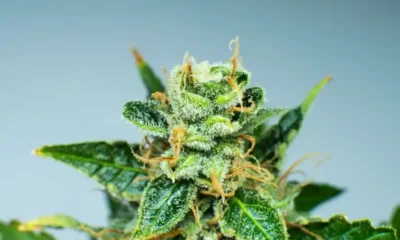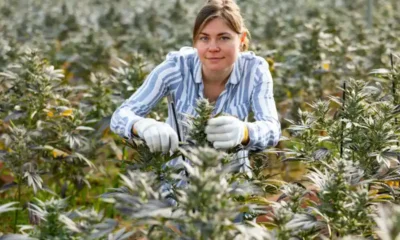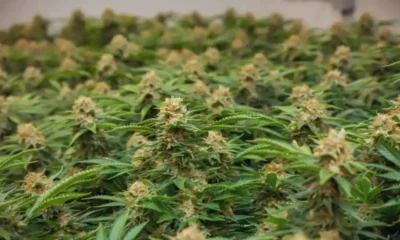Connect with us
Published
3 years agoon
By
Tyler Shultz
The newly formed Alabama Medical Cannabis Commission met for the first time for an organizational meeting to discuss how medical cannabis will be set up in the state.
Alabama passed a medical cannabis law in late May, allowing the use of medical cannabis to treat various medical conditions, including Crohn’s disease, HIV/AIDS, depression, autism spectrum disorder and Parkinson’s disease, among others. The law was effective immediately upon signing, but cannabis will not be available for another year. The law doesn’t allow for cannabis to be smoked or vaped, but it can be used in capsules, topical solutions and oils. Gummies will be allowed in one flavor that will be decided on by the commission.
The 14-member committee consists of appointees coming from certain professional backgrounds, including medicine, agriculture and pharmacy. The commission members were appointed by Alabama Governor Kay Ivey, Lieutenant Governor Will Ainsworth, House Speaker Mac McCutcheon and Senate President Pro Tem Greg Reed, Agriculture Commissioner Rick Pate, and Attorney General Steve Marshall.
“You truly have a lot of work cut out for you,” Governor Ivey told the commission members. “It will be up to you, those who have been appointed by many elected leaders around the state, to establish a criteria for medical cannabis production in Alabama.”
Dr. Steven Stokes, a radiation oncologist, was named the chairman of the commission, with Rex Vaughn being named co-chair. Stokes was the only nominee for chair and was a unanimous pick for the position. Stokes said he has been prescribing cannabis in Florida for about four years and was surprised at the results he saw from patients.
“It provides relief when what we’re doing is not working,” Stokes said. “People are continuing to lose weight from cancer, dropping weight, dropping weight, and nothing works. But you put them on medical marijuana, they start gaining weight again. That’s a big improvement.”
The law directs the commission to set up rules to allow companies to apply for the licenses to grow, sell, produce and transport cannabis products by September 2022. The commission must also set up a registry for patients and caregivers by the same date. Stokes said one of his first tasks is to hire an executive director, which he created a subcommittee for. Stokes also created four other subcommittees to help set up the certification process for doctors to participate in the medical cannabis program, and to help develop the licensing program for growers, retailers and processors.
Stokes mentioned that since all the cannabis must be grown in Alabama, the commission should license growers and processors by next April, since planting season is normally April and May. The bill limits cannabis growers to just nine. The licenses must all go to farmers who have lived in Alabama for at least 15 years.
No more than 12 cultivation licenses will be given out, with four processors and four dispensaries that may have up to three locations in different counties. Five facilities will be able to grow, process and transport cannabis. Every part of the process will be heavily monitored and surveilled.
The law also gives employers a lot of protection around medical cannabis. Employers do not have to allow or accommodate the use of medical cannabis and can even refuse to hire or terminate an employee for the legal use of medical cannabis. Employers are also to create their own drug-testing policy against medical cannabis and require employees to notify them if they plan to begin using medical cannabis.
Stokes said there will be a second more in depth meeting in two weeks, where panel members will discuss and begin the steps for outlining restrictions.


Congressional Progressive Caucus Says Dems Can Legalize MJ By Winning House, Senate Majorities This November


Cannabis Industry Has 440,000 Full-Time Workers


Federal Register Proposes Adding Fentanyl, Removing MDMA From Drug Testing Panels


Feds File Charges Against Maine Weed Grower After Probe Spanning 20 States


The Cannabis Market Is Booming in Japan


German Authorities to Ban Cannabis Smoking, Vaping at Festivals Including Oktoberfest
